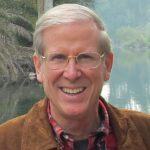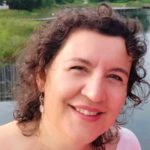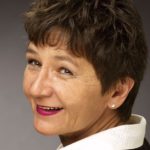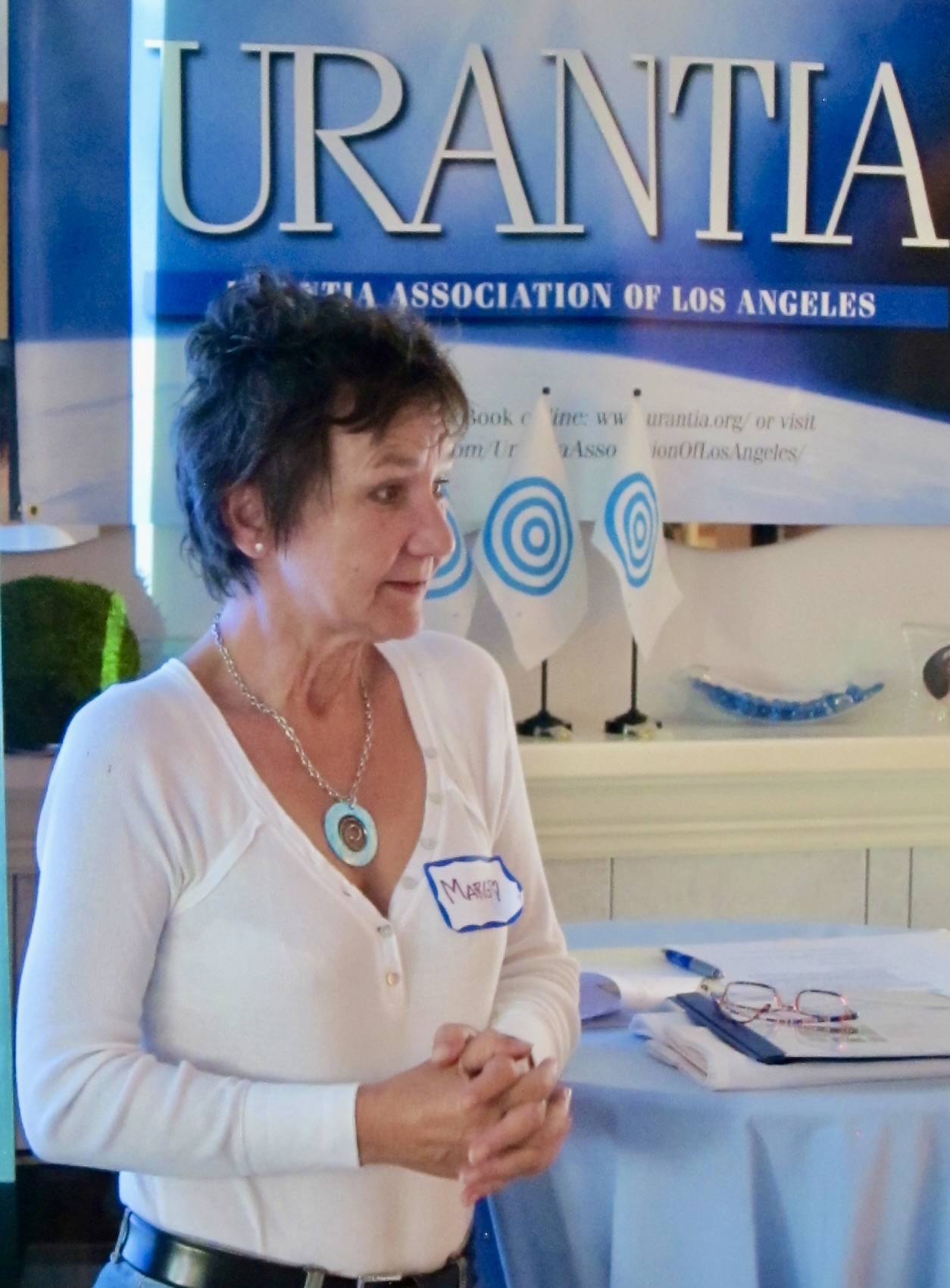Tidings – December 2022

|
In This Issue
|
|
Enrique Traver, Brazil  Hello, dear friends!
Hello, dear friends!
My children, like most Christian children, were born and raised celebrating Christmas on December 25th. It was always a magnificent celebration, with all the family members participating happily and celebrating the birth of our Master and sharing the company among all. Furthermore, when they were little, all of them believed in Santa Claus and their happiness was greatly enhanced by the anticipation of the arrival of this sweet imaginary old man bearing presents. I took advantage of this belief of the little ones to bargain with them for good behavior and high performance at school throughout the year. I grew up that way and my kids did too.
At some point, the sweet old man ceased to exist in our lives, we ceased to be children, bringing disappointment, but at the same time, the joy of being together as a family remained, all gathered in fraternization and celebrating the birth of Jesus.
Over time, we learned that the important thing was always being together, celebrating our families and the birth of Jesus.
Readers of The Urantia Book have learned that Jesus was born on the 21st of August, and therefore the date used by mankind is wrong. Some of us resist the idea of celebrating Christmas on December 25th.
I was once questioned for wishing friends a merry Christmas on December 25th at one of The Urantia Book study groups. It did not bother me that I had received a reprimand, but I was worried about the possibility that other readers might also have this type of attitude and, above all, the possibility that some of us take this type of behavior into our families, our communities, which would be a great loss for everyone involved.
Of course, we don't need to lie, but we also don't need to be the party pooper. Talking about this date does not prevent us from celebrating the birth of Jesus every day in our hearts; when the true date comes it does not prevent us from taking advantage of the opportunity to be together and celebrate Jesus, fraternize, love, and serve all those around us. The date is not the most important point. The celebration and memory of Jesus is.
The life of Jesus is a revelation of this tolerance, of this living adapted to the uses, customs, and laws of his time. He never stopped going to the synagogues or going to Jerusalem to take each of his brothers on the Passover.
Having met John, who came from near Jerusalem, Jesus began to evince an unusual interest in the history of Israel and to inquire in great detail as to the meaning of the Sabbath rites, the synagogue sermons, and the recurring feasts of commemoration. His father explained to him the meaning of all these seasons. The first was the midwinter festive illumination, lasting eight days, starting out with one candle the first night and adding one each successive night; this commemorated the dedication of the temple after the restoration of the Mosaic services by Judas Maccabee. Next came the early springtime celebration of Purim, the feast of Esther and Israel’s deliverance through her. Then followed the solemn Passover, which the adults celebrated in Jerusalem whenever possible, while at home the children would remember that no leavened bread was to be eaten for the whole week. Later came the feast of the first-fruits, the harvest ingathering; and last, the most solemn of all, the feast of the new year, the day of atonement. While some of these celebrations and observances were difficult for Jesus’ young mind to understand, he pondered them seriously and then entered fully into the joy of the feast of tabernacles, the annual vacation season of the whole Jewish people, the time when they camped out in leafy booths and gave themselves up to mirth and pleasure. [Paper 123:3.5, page 1359.6]
Let’s be happy! Let’s be pure in heart! We cannot miss the opportunity to be reunited with our family, to celebrate love, to be a living testimony of the presence of Jesus in us. Our mission is to reveal our father to men and to recognize and promote the brotherhood of man. This empathy, this opportunity to reveal Jesus, will certainly open the way to gradually disseminate the truths that have been revealed to us and draw the attention of our loved ones to these realities.
Merry Christmas to all, may Jesus be present in us and may we spread his love abundantly.
|
|
Gard Jameson, USA  I invite you to consider a study group as a Circle of Trust. I became familiar with the term “Circle of Trust” back in 2004 with the publication of Parker Palmer’s book, A Hidden Wholeness. Our community has engaged a number of retreats using the tool kit of the Circle of Trust. Parker Palmer hails from the Quaker Tradition and shares in his book many insights of that tradition, which are in agreement with the teachings of Jesus. He quotes Rufus Jones, one of the human sources used in the development of The Urantia Book, who writes: “I pin my hopes to quiet processes and small circles, in which vital and transforming events take place.” In the history of the development of The Urantia Book there was a communication known as the Publication Mandate that the Forum studied very closely which states:
I invite you to consider a study group as a Circle of Trust. I became familiar with the term “Circle of Trust” back in 2004 with the publication of Parker Palmer’s book, A Hidden Wholeness. Our community has engaged a number of retreats using the tool kit of the Circle of Trust. Parker Palmer hails from the Quaker Tradition and shares in his book many insights of that tradition, which are in agreement with the teachings of Jesus. He quotes Rufus Jones, one of the human sources used in the development of The Urantia Book, who writes: “I pin my hopes to quiet processes and small circles, in which vital and transforming events take place.” In the history of the development of The Urantia Book there was a communication known as the Publication Mandate that the Forum studied very closely which states:
The book is being given to those who are ready for it long before the day of its world-wide mission. Thousands of study groups must be brought into existence and the book must be translated into many tongues. Thus will the book be in readiness when the battle for man’s liberty is finally won and the world is once more made safe for the religion of Jesus and the freedom of mankind. [emphasis added]
Those thousands of study groups have the opportunity to be not only a place of intellectual appreciation of the revelation; as well, they have the opportunity of being a place “in which vital and transforming events take place.” Our own study group, The Meadows (of Las Vegas) Study Group is such a place. We begin and end each study group with a few minutes of worshipful silence to invite the soul to show up in a beneficial manner, to experience the peace which Jesus leaves to each of us. Throughout the study group there is a quality of “meekness,” sensitivity to human need, an ability to “mourn,” to show vulnerability, when a story of depth is shared, and a sense of mercy and compassion as such stories are shared, that allows for souls to feel comfort, comradery, and friendship.
Indeed, I would suggest that many, many more study groups will come into existence, helping to prepare the way for the revelation, when they actually become containers in which “transforming events” that touch the soul can take place.
The following “Touchstones” are adapted from Parker Palmer’s Touchstones for Circles of Trust. More information can be found in his book and at The Center for Courage and Renewal: www.couragerenewal.org. Palmer’s methodology provides a safe harbor for the soul, which is shy, and an extremely important grounding for any genuine dialog. The Touchstones are:
Extend and receive welcome. People learn best in hospitable spaces. In the Circle of Trust, we learn to support each other’s learning by giving and receiving sincere hospitality and friendship.
Be present as fully as possible. Be here with your doubts, fears and failings as well as your convictions, joys, and successes, your deep listening as well as your loving speech.
What is offered in the circle is by invitation, not demand. This is not a “share or die” event! During this time, do whatever your soul calls for, and know that you do it with the support of the group. If you choose not to say anything, that is perfectly fine. Your soul knows your needs better than anyone else.
Speak your truth in ways that respect other people’s truth. Our views of reality do differ; speaking one’s truth in a Circle of Trust does not mean interpreting, correcting, or debating the perspective of others. Speak from your center to the center of the circle, using “I” statements, trusting people to do their own sifting and winnowing. As with any study group there is room for correction of “fact,” when fact is misstated.
No fixing, no saving, no advising, and no setting each other straight. This is one of the hardest guidelines for those in the helping professions. But it is one of the most vital rules if we wish to make a space that welcomes the soul and the inner teacher. This is truly a manifestation of “fatherly love.”
Learn to respond to others with honest, open questions instead of counsel, corrections. With such questions, we help hear each other into deeper speech. We learn the power of deep, empathetic listening. Open questions are not “yes/no” questions; they are questions that open the soul to a deeper sharing.
When the going gets rough, turn to wonder. If you feel judgmental, or defensive, ask yourself, “I wonder what brought her/him to this belief?” or “I wonder what (s)he’s feeling right now?” or “I wonder what my reaction teaches me about myself?” Set aside judgment to listen to others—and to yourself—more deeply and with wonder. Be mindful of emotionally reactive responses that invite disunity, discord, and distress.
Attend to your own inner teacher. We learn from others, of course. But as we explore The Urantia Book and our stories, questions, and silence in a circle of trust, we have a special opportunity to learn from the inner teacher. So pay close attention, be mindful, to your own reactions and responses, to your most important inner teacher.
Trust and learn from the silence. Silence is a great gift in our noisy world, and a way of knowing in itself. Treat silence as a member of the group. After someone has spoken, take a moment to reflect without immediately filling the space with words. Try not to overspeak. Rumi says:*
Listen to the Silence
It has much to say
Silence is the language of God
All else is a poor translation
Keep Silent
Because the World of Silence
Is a Vast Fulness
Let Silence be your practice
Let Silence take you to the Core of Life
Observe deep confidentiality. Trust comes from knowing that group members honor confidences and take seriously the ethics of privacy and discretion. What is shared is shared in confidence.
Know that it’s possible to leave the circle with whatever it was that you needed when you arrived. Know that the seeds planted in a Circle of Trust can keep growing in the days, months, and years ahead.
— Gard Jameson has been a reader of The Urantia Book since 1972, and has attended study groups since then. He is a Trustee at Urantia Foundation and the founder of Compassionate Las Vegas, www.compassionatelv.org
(* Rumi was a 13th-century Persian poet. Full name - Jalāl al-Dīn Muḥammad Rūmī.)
|
|
Olga López, Spain
Overcoming Materialism, Enlightening Europe
(Editor’s note: The Urantia Association of Spain, Urantia Association International, and the European Organizing Committee worked hard to create this event in Southern Europe to unite the European Urantia Community once again for our third European Urantia Conference.)
 The 3rd European Conference of Urantia Book readers was held at the Sol Don Pablo Hotel in Torremolinos (Malaga, Spain) from October 20 to 23. Almost 70 readers attended from different parts of Europe and the rest of the world (from Georgia in Eastern Europe to the United States and Argentina in the American continent). With summer temperatures, we were able to enjoy not only the weather, but also the good company of other readers and some activities related to the theme of the conference and the theme of self-mastery, to which several workshops were dedicated.
The 3rd European Conference of Urantia Book readers was held at the Sol Don Pablo Hotel in Torremolinos (Malaga, Spain) from October 20 to 23. Almost 70 readers attended from different parts of Europe and the rest of the world (from Georgia in Eastern Europe to the United States and Argentina in the American continent). With summer temperatures, we were able to enjoy not only the weather, but also the good company of other readers and some activities related to the theme of the conference and the theme of self-mastery, to which several workshops were dedicated.
This third European conference was intended to have a practical focus, so that attendees would return home with new ideas and tools to improve the art of self-mastery. Hence, the workshops of the so-called "route of self-mastery" had a theoretical part and a practical part in which the participation of the attendees was a prerequisite. To facilitate the organization, two routes were defined by language: English and Spanish, which worked independently but always focused on the same theme: self-mastery under the light of the teachings of The Urantia Book. As they developed independently, the approaches were different but equally enriching. There were readers who attended activities in both languages, so multilingual people had the advantage of seeing these different approaches. But there were also joint activities that maintained the cohesion of the group of attendees thanks to the translation services.
Since this was the first international face-to-face conference since the outbreak of the COVID-19 pandemic, everyone was eager to meet again and catch up. For this reason, the organizers (who I would like to thank for their hard work) wanted to encourage social interactions by including two excursions in the program: the first one on Friday 21st in the morning, when we visited the Dolmens of Antequera, which are megalithic monuments older than Stonehenge or the pyramids of Egypt; and the second excursion on Saturday 22nd in the evening, when we took a walk through the city of Malaga accompanied by a guide who reviewed the millenary history of the city (founded by the Phoenicians) and told funny anecdotes about certain corners and the character of the local people. That night all the attendees enjoyed a typical dinner at a restaurant located on one of the beaches of Malaga.
On a personal note, this was my first conference as a Trustee of Urantia Foundation, where I had a chance to chat with many readers. I met new readers and continued to cultivate old friendships. I spent time listening carefully and trying to look beyond the program of activities to gauge the health of the Urantia community in Europe, and I must say that the development of the community of readers on this continent continues apace. There are capable leaders working tirelessly to keep the community cohesive. I also saw that the presentations and workshops have evolved: their format has diversified, the content has deepened, and the participation of the readers is more sought after. Above all, they apply the teachings in their daily lives.
For all these reasons, I am certain that a milestone has been reached in the development of the European reading community. Despite being scattered in many countries of different languages, European readers have created a common space from which to build a network of support to overcome materialism and enlighten Europe.
|
 Margo Sherwood, beloved wife of Will Sherwood, after a long illness, graduated peacefully in the early hours of Saturday morning, October 29, 2022, with the help and support of her husband, her pets, and loving hospice care workers.
Margo Sherwood, beloved wife of Will Sherwood, after a long illness, graduated peacefully in the early hours of Saturday morning, October 29, 2022, with the help and support of her husband, her pets, and loving hospice care workers.
Margo was born in 1954 in Hungary and escaped that communist nation in her early 20’s. She and her then husband stayed in Austria for nine months awaiting political asylum to become American citizens.
As a successful real estate agent in Los Angeles, CA, she spent her office breaks talking with (unknown to her at the time) Urantia Book reader, Jean Painter. And for about nine months, though they talked much about philosophy, surprisingly Jean never mentioned the book! However, while attending a Whole Life Expo in Pasadena, CA, Margo found herself drawn to the booth hosted by The Urantia Book Los Angeles Society. As she read over a list of people currently reading the book, she was stunned to find that her friend and colleague, Jean, was on the list of people reading and studying the book! Margo immediately called Jean, saying, “This is Margo from Urantia! Why haven’t you told me about this book?” From that point, still in her 20’s, Margo started actively reading the book and attending study groups in Southern California.
While attending a party in Joshua Tree, California, her friends pointed out recently widowed Will Sherwood and his two boys, nine and eleven. Since her divorce eight years previously, Margo had made it her goal to marry a widower with children, and she immediately introduced herself to Will.
 Sparks flew, and they spent the rest of the night gazing at the stars and talking about their eternal adventure. They were married in Hawaii two years later by long time reader, Marian Hughes.
Sparks flew, and they spent the rest of the night gazing at the stars and talking about their eternal adventure. They were married in Hawaii two years later by long time reader, Marian Hughes.
In addition to continuously attending or hosting a study group since those days, Margo helped host the Foundation’s Trustees in their home in Santa Clarita, CA for the founding of SURF, the Southwest Urantia Readers Family. She was also one of the founders of the Urantia Association of Los Angeles. (She had playfully suggested perhaps the association be called Santa Monica Urantia Readers Family, but the acronym “SMURF” was simply too funny for serious consideration.)
After 26 years of devoted marriage and travel around the world attending Urantia conferences, Margo and Will settled in Myrtle Beach, South Carolina. All who knew Margo look forward to meeting up with her on the mansion worlds.
|
The International Service Board (ISB) recently held elections for the positions of Vice President, Secretary, Communications Chair, Dissemination Chair, and Study Groups Chair. Here are the results:
Vice President: Andres Rodriguez (re-elected for second term)
Secretary Joanne Strobel: (re-elected for second term)
Communications Chair: Myra Hight (elected for first term)
Dissemination Chair: Willem Jeths (re-elected for second term)
Study Groups Chair: Phillip Marriott (elected for first term)
Congratulations to the successful candidates. Former Communications Chair and Study Groups Chairs, Kathleen Swadling and Andrés Ramírez respectively completed their second terms so needed to step down. We are very grateful for their incredibly loving, loyal, and tireless service. We welcome Myra Hight from California and Phillip Marriott from South Australia to the ISB. We hope they find their volunteer work for the Urantia revelation fulfilling, rewarding, and joyful.
|
The Tidings newsletter is a quarterly on-line publication that serves as Urantia Association International’s primary communication tool for reaching out to the Association’s membership, supporters, donors, volunteers, and general readership friends. It provides news and information on the many activities and events of the National or Affiliate Urantia Associations around the globe as well as information and announcements from Central Office, the International Service Board (ISB), and the International Representative Council (IRC). It serves to keep members in touch with one another and gives readers a sense of belonging—of being an integral part of a truly international movement that is designed to promote the Urantia revelation to all corners of the world.
Note: Tidings also occasionally provides news of other Urantia-related activities and events that may be of interest to our supporters and friends. Please note that any interpretations, opinions, conclusions, or artistic representations, whether stated or implied, are those of the authors and do not necessarily represent the views and opinions of Urantia Association International, the National or Affiliate Urantia Associations, or the editorial team of the Association’s Tidings.
Grass Roots Level
The number of National or Affiliate Urantia Associations scattered throughout the world is steadily growing and collectively they undertake service activities that have the ability to inspire and motivate others; activities such as study conferences, regional gatherings, study groups, dissemination programs, educational programs, outreach projects, and the development of study aids and newsletters. These Associations are the lifeblood of Urantia Association International—they function at the grass roots level where effective service and dissemination of the revelation takes place.
Share Your Stories
There are thousands of readers with unique personal stories about how they found The Urantia Book and how it has changed their lives. There are hundreds of study groups all over the world that can share stories and encourage readers to either create a study group of their own or participate in one. These stories need to be told and Tidings provides an effective platform for the sharing of such activities.
If you would like to share your stories please submit your material to the Chief Editor. Topics may include:
- How you found The Urantia Book
- Special projects such as Book Fairs, Library Placement, Outreach
- New or established study groups—how you got started—what keeps you going?
- Your annual meetings, picnics, or other social gatherings
- Send pictures
Tidings Team
- Chief Editor: Myra Hight
- Co-editors: Mark Blackham, James Woodward, Richard Jernigan
- Online and hard-copy English newsletters: Mark Blackham
- Spanish translator an online Spanish newsletter: Olga Lopez
- French translator: Alain Cyr and collaborators
- French online newsletter: Alain Cyr
Submissions:
Submit articles to the Chief Editor and please understand that they may be subject to revision. Please limit them to approximately 1 to 1½ pages (700 to 1400 words) plus one or two photos.
|
|

